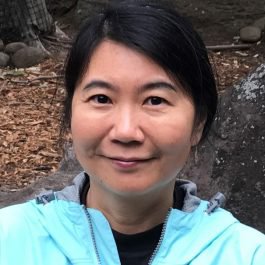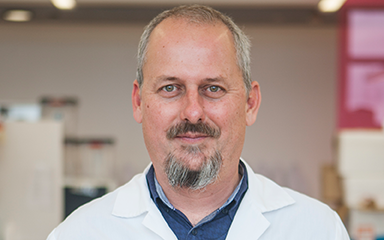Invited Speakers

Jinghui Zhang (St. Jude Children’s Research Hospital) - International Speaker
Professor Zhang is a computational biologist focused on the integrative analysis of large-scale, multi-dimensional genomic data to understand the initiation and progression of diseases. Her research interest has been in the development of highly accurate and sensitive computational methods for analyzing large-scale genomic data, especially in the area of detecting and analyzing genetic variations and somatic mutations. She participated in the development of BLAST and led the genetic variation analysis of the first assembled human genome. Her group has developed computational tools for analyzing genetic variations and somatic mutations.Understanding the genetic origin of pediatric cancers is currently the main focus of her research group which is primarily responsible for analyzing the next-generation sequencing data generated from the St. Jude Children’s Research Hospital - Washington University Pediatric Cancer Genome Project (PCGP). Recently her team developed a suite of algorithms, CREST, CONSERTING and CICERO, for discovery of structural variations and copy number alterations in cancer genome at high accuracy. She has developed mathematical models for mapping clonal evolution trajectory from diagnosis to relapse for pediatric solid tumor and leukemia.

Anders Skanderup (Genome Institute of Singapore) - International Speaker
Anders Skanderup is a Group Leader at the Genome Institute of Singapore. His research focuses on computational and data-intensive approaches to deciphering the molecular basis of cancer and improving treatments. Recent contributions include computational methods for identifying cancer mutations and non-coding driver mutations, as well as deconvolution approaches for tumor transcriptomes and cell-free DNA. He is also a principal investigator in large national programs for lung cancer and cancer liquid biopsies. Dr. Skanderup has published 90 research papers (h-index 53). He holds adjunct positions in the Department of Computer Science at the National University of Singapore, the Cancer Science Institute of Singapore, and the National Cancer Center Singapore. He obtained a B.S. in Computer Science and a Ph.D. in Bioinformatics from the University of Copenhagen, Denmark. Subsequently, he completed postdoctoral training at Memorial Sloan-Kettering Cancer Center in New York, where he developed and applied computational methods to study cancer using high-dimensional cancer genomic datasets.

Alistair Forrest (Harry Perkins Institute of Medical Research) - National Speaker
Professor Forrest BSc (Hons), MIT, PhD was born in Western Australia and obtained his BSc (Hons) in Biotechnology at Murdoch University in 1993. He then moved to Brisbane and while working as a research assistant at the QIMR completed a Masters in Information Technology at the Queensland University of Technology. Shortly afterward, he completed his PhD in Bioinformatics at the Institute for Molecular Bioscience at the University of Queensland. During his time in Brisbane he was involved in both ‘wet’ and ‘dry’ science, generating and analysing some of the first microarrays used in Australia and invented a strand specific RNA-seq protocol that heralded the start of the RNA-seq revolution. In 2007 he moved to RIKEN Yokohama Japan on a CJ Martin Fellowship. Over the past seven years he has progressively been promoted at RIKEN taking on more senior roles, and is currently scientific coordinator of the FANTOM5 (Functional Annotation of the mammalian genome) project consisting of a consortium of over 250 scientists in 20 countries. This has used single-molecule sequencing to generate a map of promoters and enhancers across a large collection of human and mouse primary cells, cancer cell lines and tissues. The work has recently been published in the prestigious journal Nature along with a collection of 18 additional satellite papers in specialised journals such as Nature Biotechnology, Genome Research and Blood.

Katherine Pillman (The University of South Australia) - National Speaker
Dr Katherine Pillman is a bioinformatician and RAH Florey Fellow at the Centre for Cancer Biology in South Australia. She uses a variety of transcriptomic methods and next-gen sequencing data types to dissect gene regulation through analysis of microRNA biology and targeting, circular RNAs, alternative splicing, epigenetic modifications, gene regulatory networks and expression. She obtained her PhD in Molecular Biology from the University of Adelaide in 2009 working on transcriptional regulation in barley plants. Her postdoctoral research at Oregon State University involved RNA-seq analysis of stress-responsive gene regulatory networks in potato plants. In 2012, she returned to Australia to take up her current role as Lead Bioinformatician in the Gene Regulatory Section at the Centre for Cancer Biology. Career highlights include a Cell paper which identified the first protein known to control the formation of circular RNAs, and the subsequent discovery that this protein, Quaking, is a key emerging player in splicing in cancer. Other work has identified genome-wide microRNA regulatory networks controlling cell invasion and uncovered the cooperative role of microRNAs in cancer.